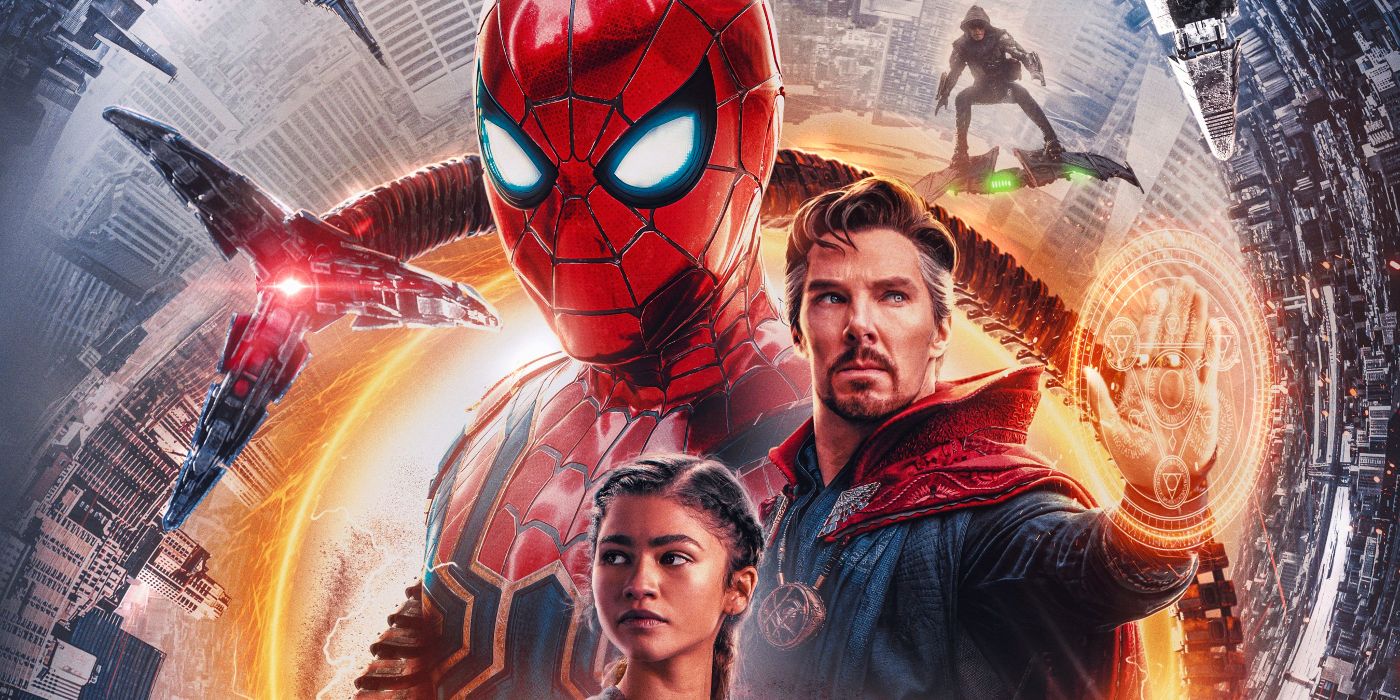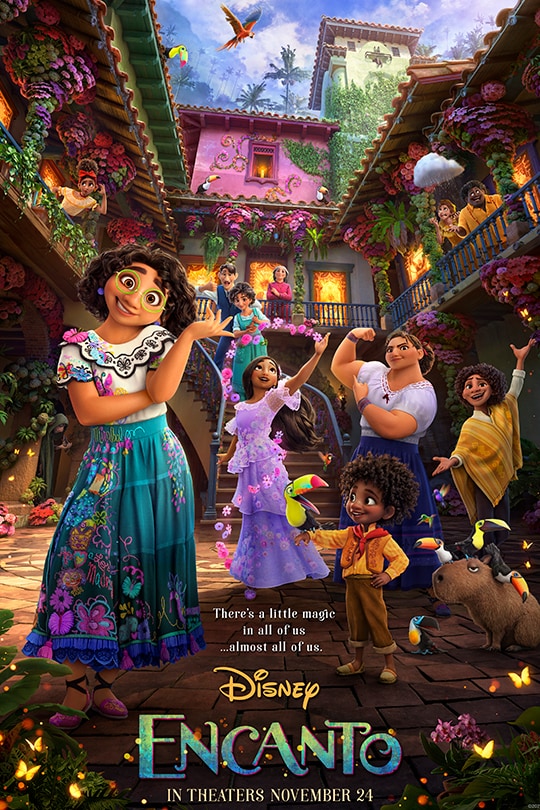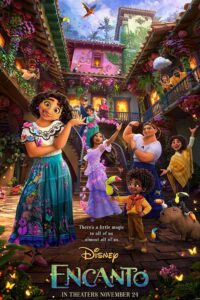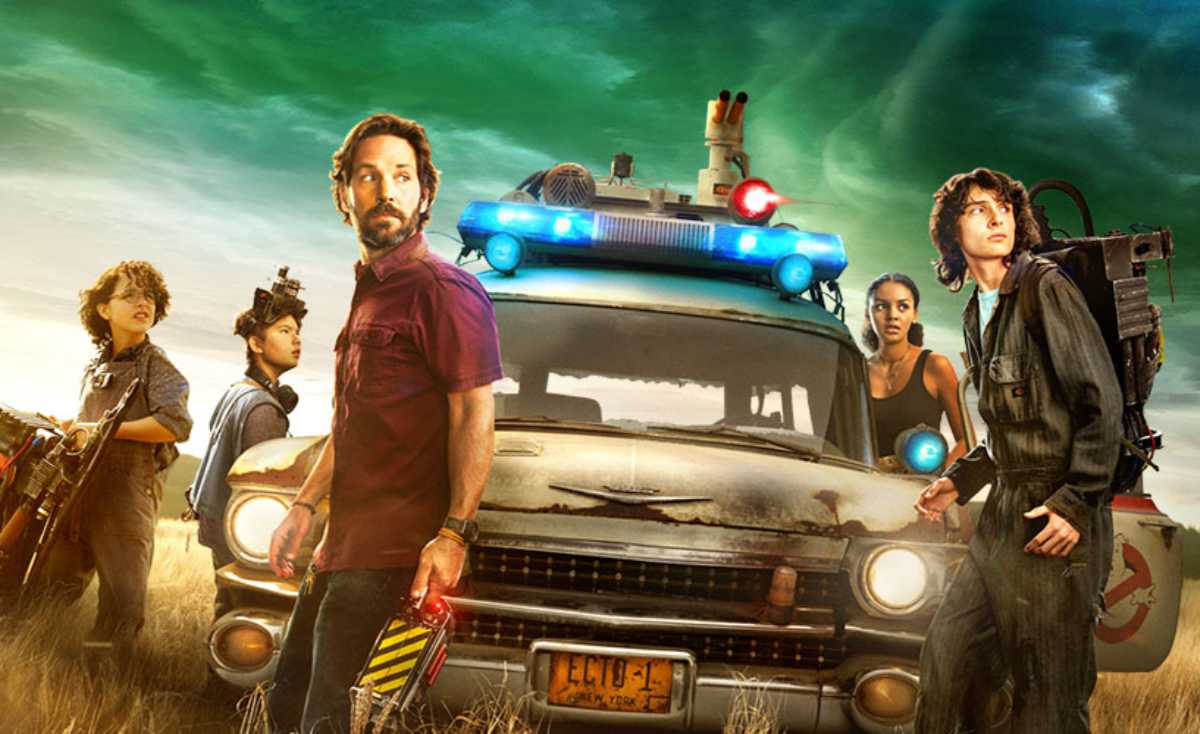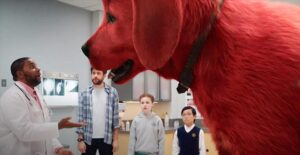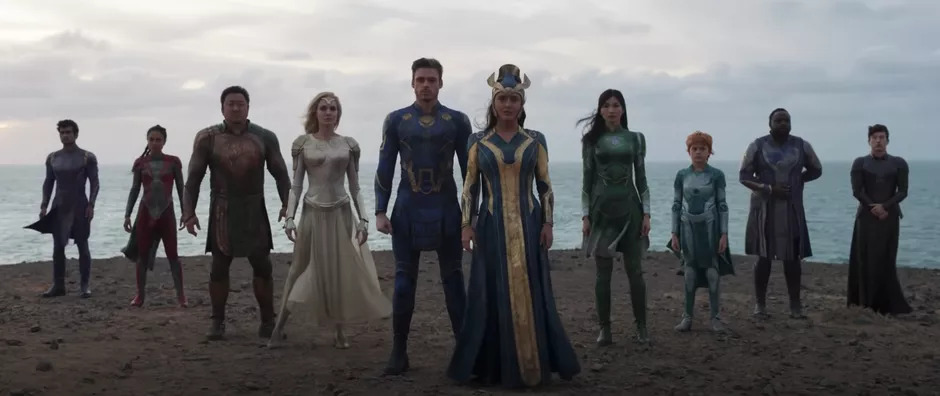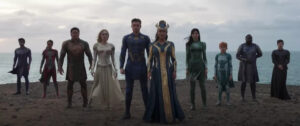Spider-Man: No Way Home
Posted on December 14, 2021 at 12:12 pm
B +| Lowest Recommended Age: | Middle School |
| MPAA Rating: | Rated PG-13 for sequences of action/violence, some language and brief suggestive comments |
| Profanity: | Some strong language |
| Alcohol/ Drugs: | None |
| Violence/ Scariness: | Extended comic-book/fantasy peril and violence, characters injured and killed, very sad death, some graphic and disturbing images |
| Diversity Issues: | None |
| Date Released to Theaters: | December 17, 2021 |
| Date Released to DVD: | April 11, 2022 |

It is tough to say much more without spoilers, but I am going to try. I recommend that you see the movie before reading the rest of the review, though, if you want the delight of all of the surprises. Then come back here and see what I have to say to find out if you agree.
It takes off where “Spider-Man: Far From Home” left us, with the public revelation that Spider-Man is high school student Peter Parker. Now, helicopters are hovering outside of the apartment Peter (Tom Holland) shares with Aunt May (Marisa Tomei). Blowhard J. Jonah Jameson (J.K Simmons) is a Limbaugh/O’Reilly-style media personality who calls Spider-Man a terrorist and vigilante, leading to public protests. Aunt May, Spidey’s best friend and “chair guy,” Ned (Jacob Batalon) and girlfriend MJ (Zendaya) are all being harassed. Almost as painful, his high school teacher has set up something of a shrine and the principal tries to reassure him by telling him he is welcome to swing through the halls or crawl on the ceiling.
Peter cannot live his life or help anyone else in this situation, so he goes to one of the other Avengers for help: Dr. Strange (Benedict Cumberbatch). What he needs is a way to make everyone forget they know his secret identity. Strange agrees to help, but Peter interrupts the spell and something goes wrong.
Spoiler alert, last warning: this opens up a portal to the multi-verse, and that lets in some of the classic Spidey villains, including my all-time favorite, Doc Oct (Alfred Molina). There is also an appearance by my least favorite Spider-Man villain, but this film gives him a vastly better role. This leads to some show-stopping confrontations, staged with exceptional dynamism, pacing, and even wit. There are some very funny moments when the super-villains refer to each other as “a brilliant scientist” and when they compare notes. “You fell into something? I fell into something!”
There are more delicious meta-moments, but it is all anchored by real emotion. Peter is a teenager, so the anguish of college applications and the drama of first love are as wrenching as the battles with supervillains to save the planet. Just as the previous entry upended the usual structure of the superhero/supervillain conflict, this one remixes it again, raising the fundamental question about what it is we want or should want from those battles, but cleverly letting us have it both ways. Peter’s mentor, Tony Stark, is gone, and so the person he seeks help from is Dr. Strange. Like Stark, he is arrogant and impatient but not unmoved by Peter and he provides some critical (in both senses of the word) direction, ordering Peter, Ned, and MJ to “Scooby-Doo this s**t.” If it glosses quickly over the actual problem-solving (requiring chemical stuff and mechanical stuff and computer stuff) it’s fine because we would not want to watch that for too long when there are action scenes ahead and they are bangers.
Peter gets some guidance and support from an unexpected source that adds to the humor and to the emotional heft of the story, touching on love, loss, chance, and regret and, as they say in “The Good Place,” what we owe each other. What Marvel/Sony/Columbia owes the audience is a terrific comic book movie, and they have delivered.
NOTE: Stay all the way through the credits for TWO extra scenes.
Parents should know that this film features extended superhero/fantasy peril and violence. Characters are injured and killed and there is a very sad death and discussion of loss and regret. There is some strong language and a kiss.
Family discussion: Was Aunt May right about second chances? What was the most important thing Peter learned from his counterparts?
If you like this, try: the entire Spidey-verse of movies, including the three each for Tobey Maguire and Andrew Garfield and the Oscar-winning “Spider-Man: Into the Spider-Verse”

